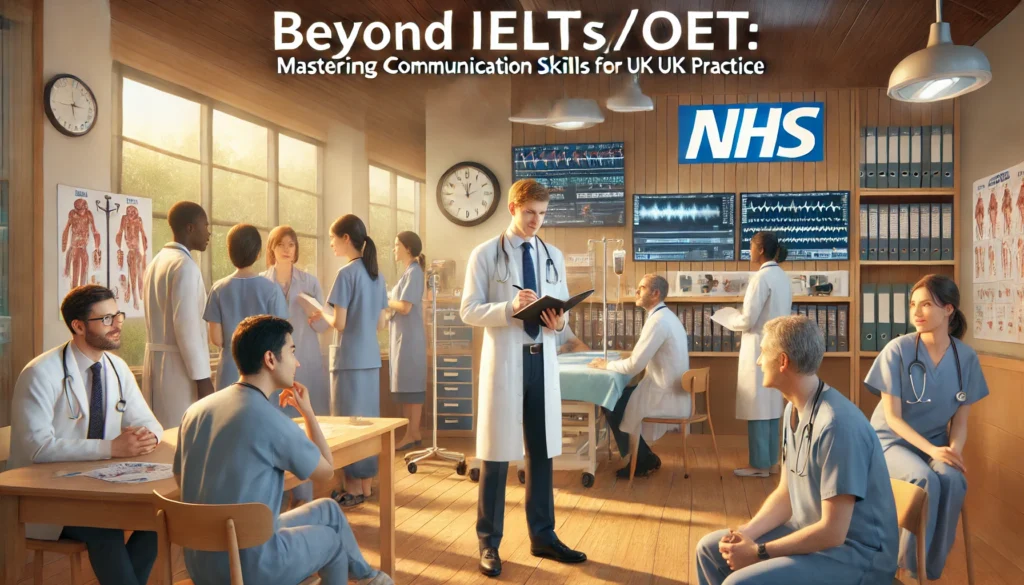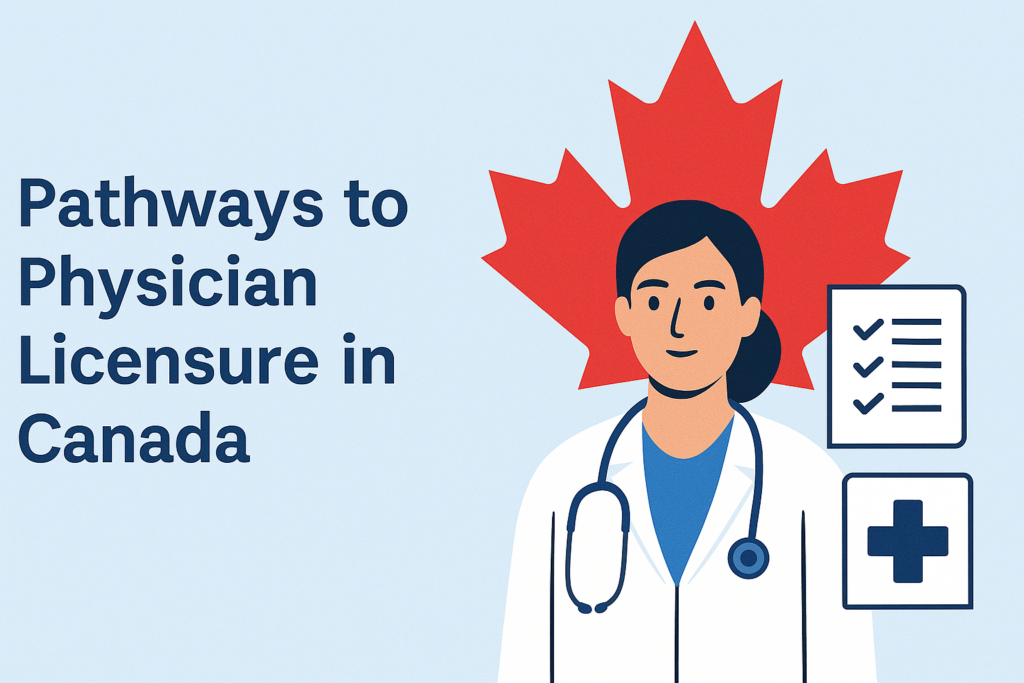Passing the IELTS or OET is a significant milestone, but it’s only the beginning of your journey to mastering communication in a UK medical setting. Adapting to UK-specific medical terminology, patient-doctor norms, and documentation styles can be challenging, but you can excel with the right resources and strategies.
Why Communication Matters Beyond IELTS/OET
While IELTS/OET scores demonstrate your language proficiency, practicing medicine in the UK requires more than just passing grades.
- Key Takeaway: Effective communication builds patient trust, ensures accurate diagnoses, and enhances teamwork.
- Good News: You can bridge the gap between language proficiency and real-world application with targeted practice.
Resources for Improving Medical English
Improving your medical English doesn’t have to be overwhelming. Here are some practical resources to get started:
1. Online Courses and Apps
- BMJ Learning: Offers modules on UK-specific medical communication.
- OET Preparation Materials: Even if you’ve passed OET, their resources are excellent for refining skills.
- Medical English Apps: Apps like MedLingua focus on medical vocabulary and phrases.
2. Books and Guides
- “Oxford Handbook of Clinical Medicine”: An excellent resource for understanding UK medical terminology.
- “Communication Skills for the Health Care Professional”: Focuses on patient-centered communication.
3. Podcasts and YouTube Channels
- Podcasts: Listen to The BMJ Podcast or GP Update for insights into UK healthcare practices.
- YouTube Channels: Channels like Dr. Najeeb’s Lectures often include UK-specific case discussions.
4. Language Exchange Programs
- Partner with native English speakers or fellow IMGs to practice conversational skills.
- Platforms like Tandem or UK Medics connect you with language partners.
Pro Tip: Use the UK Medics app for tailored resources and practice exercises designed for IMGs.
How to Adapt to UK Patient-Doctor Communication Norms
UK healthcare emphasizes patient-centred care, Empathy, and clear communication. Here’s how to align with these norms:
1. Emphasize Empathy
- Use phrases like “I understand this must be difficult for you” to show compassion.
- Avoid overly technical jargon; simplify explanations for patients.
2. Practice Active Listening
- Let patients finish speaking before responding.
- Paraphrase their concerns to confirm understanding (e.g., “So what you’re saying is…”).
3. Be Culturally Sensitive
- Respect cultural differences in health beliefs and practices.
- Avoid assumptions about patients’ backgrounds or preferences.
4. Follow NHS Guidelines
- Familiarize yourself with NHS protocols for consent, confidentiality, and patient rights.
Important Note: Observing UK doctors during clinical attachments can help you internalize these norms.
Mock Scenarios for Practicing Consultations and Documentation
Practicing real-life scenarios is crucial for building confidence. Here’s how to simulate UK-style consultations:
1. Role-Playing Exercises
- Pair up with a friend or mentor to role-play common scenarios:
- Breaking bad news.
- Explaining treatment plans.
- Handling difficult patients.
2. Use Mock Case Studies
- Practice documenting consultations using NHS-style templates.
- Example: Write a SOAP note (Subjective, Objective, Assessment, Plan) for a mock patient case.
3. Leverage Online Tools
- Platforms like Consultation Skills for Medical Students offer virtual patient interactions.
- Use NHS e-Learning for Healthcare for interactive training modules.
4. Seek Feedback
- Record your consultations and review them with a mentor or peer.
- Identifying areas for improvement, such as clarity, tone, or structure, will be beneficial.
Pro Tip: The UK Medics app includes mock scenarios and feedback tools to refine your skills.
Common Challenges and How to Overcome Them
Challenge 1: Understanding Regional Accents
- Solution: Watch UK TV shows or listen to regional podcasts to familiarize yourself with accents.
Challenge 2: Writing Clear Documentation
- Solution: Study NHS documentation guidelines and practice summarizing cases concisely.
Challenge 3: Handling Fast-Paced Conversations
- Solution: Slow down your own speech and ask clarifying questions when needed.
Summary of Key Takeaways
- Resources: Use online courses, books, podcasts, and apps to improve medical English.
- Adaptation: Focus on Empathy, active listening, and cultural sensitivity to align with UK norms.
- Practice: Engage in role-playing, mock scenarios, and feedback sessions to build confidence.
- Leverage Tools: Use the UK Medics app for structured practice and guidance.
Take Action Today!
Mastering communication skills is essential and vital for thriving in UK healthcare. By leveraging these resources and practicing consistently, you’ll be well-prepared to communicate effectively with patients and colleagues.
Now it’s your turn!
- Have you tried any of these strategies? Share your experience in the comments below.
- Download the UK Medics app for personalized tools to enhance your communication skills.
- Share this post with fellow IMGs who might find it helpful.
Let’s make your transition to UK practice as smooth and successful as possible!










